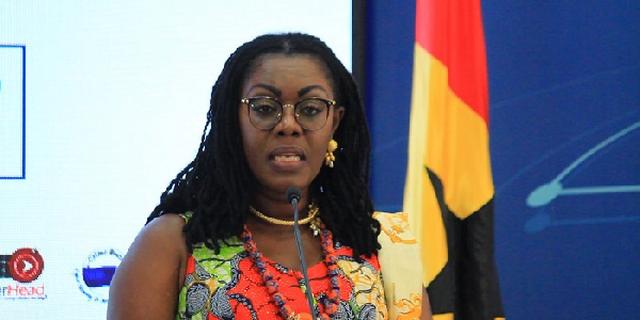
The Communications Minister has reiterated Government’s determination to develop secure and resilient cyberspace for a sustained digital transformation.
Ursula Owusu-Ekuful said Ghana, over the past few years, had put in place interventions towards the creation of a safer digital ecosystem.
Among the interventions, she said, was the revision of the National Cybersecurity Policy and Strategy to provide a national direction and implementation plan for Ghana’s cybersecurity development.
Also, Mrs Owusu-Ekuful said there had been the passage of the Cybersecurity Act, 2020 (Act 1038) to provide a legal basis for cybersecurity development.
On Wednesday, the Minister made these known in a speech read on her behalf by Madam Ama Pomaa Boateng, Deputy Minister of Communications and Digitalisation.
She was speaking at the opening ceremony of the maiden meeting of the African Union (AU) – Global Forum on Cyber Expertise (GFCE) Africa Cyber Experts (ACE) Community.
The three-day event is being attended by 65 participants from 31 African Countries.
It is on the theme: “Setting the Scene for Cybersecurity Status in Africa.” Mrs Owusu-Ekuful said other interventions rolled out to secure Ghana’s cyberspace were the institutionalisation of cybersecurity to foster domestic cooperation and collaboration, the ratification of the Convention on Cybercrime, also known as the “Budapest Convention” and the African Union Convention on Cyber Security and Personal Data Protection, also known as the “Malabo Convention.”
“We have also adopted the ECOWAS’ Regional Cybersecurity and Cybercrime Strategy and Regional Critical Infrastructure Protection Policy to strengthen Ghana’s regional and international response in fighting cybercrime and improve on cybersecurity,” she said.
She said many Ghanaians had experienced cybersecurity incidents, including online fraud, online blackmail, online impersonation and identity theft, publication of non-consensual intimate images, unauthorised access, social engineering scams, hacking into protected systems, and other cybersecurity-related breaches.
Source: Mynewsghana





